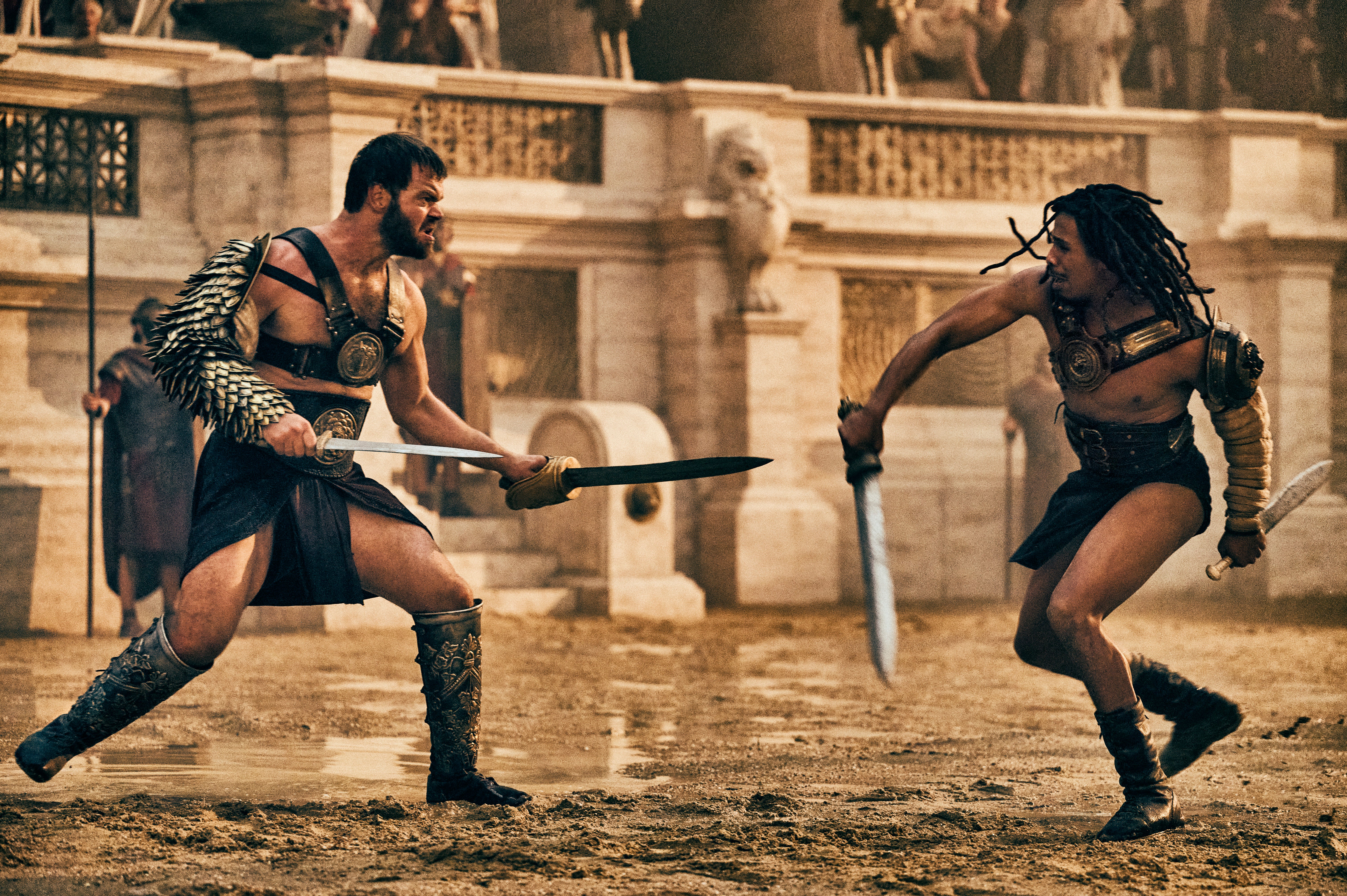How often do you think about the Roman Empire? That was a question that went viral on social media last year, exposing, to a generation of girlfriends, just how much time their partners wasted thinking about what was going on in Italy at the turn of the first millennium. People now regularly describe arcane nonsense – for me, the 1946 New Towns Act or the Nancy Meyers movie, The Intern – as their “Roman Empire”. But for people whose Roman Empire is still the good ol’ Roman Empire, Roland Emmerich – the man behind Independence Day and The Day After Tomorrow – brings the Eternal City back to our screens in Prime Video’s 10-part epic, Those About to Die.
Rome, AD 69. For those in the know, this year represented the peak of post-republic political instability: the Year of the Four Emperors. The last of these, Vespasian (Anthony Hopkins), is tasked with returning Rome to stability and prosperity. But, within the Flavian dynasty itself, there is a rivalry between the emperor’s two sons. The elder, Titus (Tom Hughes), is a warrior prince who’s shacked up with a Judean queen. The spare, Domitian (Jojo Macari), is a cynical climber grappling with the capital’s politics. To buy the loyalty of the people and subdue incipient turbulence, Vespasian embarks upon the construction of a new amphitheatre – the Colosseum – which, in turn, opens up a world of opportunities for the city’s Plebian underworld.
“Rome, once the beacon of civilisation, is now a cesspool of corruption and decay,” announces Tenax (Game of Thrones’ Iwan Rheon). Tenax is a hustler, running the gambling beneath the Circus Maximus and making bank thanks to his business partner, the brilliant but crooked charioteer Scorpus (Dimitri Leonidas). In the moral slurry, these men have the opportunity to rise. “Our emperor is from a family of mule breeders,” Tenax tells Scorpus. “One day plebeians like us might rule this city.” But seizing that chance is, like chariot racing or fighting in the pit, a dangerous game.
What accounts for our fascination with gladiators? Alongside Those About to Die, Ridley Scott is returning to the arena this year with Gladiator II, another trip into the horrors of the pit. “The crowd want to see blood,” Domitian tells his father, inspecting the new arena, “and they want to be close enough to see it.” Emmerich’s vision of Rome is plenty bloody. At the heart of the fighting is Kwame (Moe Hashim), a Numidian slave who takes his chances in the ring, facing off against man and beast in a brutal battle royale. While the scarlet flies, the squalor is less convincing: this is Rome depicted like a cutscene from Assassin’s Creed. The city sprawls in CGI splendour, lens flares and light beams playing off the marble, reflecting that Classical beauty.
The characters’ aesthetics, too, are more concerned with titillating than convincing. This is a Rome of heaving (and frequently exposed) bosoms and gladiators wearing little more than a thong, their muscles gleaming in the Golden Hour light. In short, it is more akin to Spartacus: Blood and Sand, the gratuitously sexy 2010 thriller, than the brilliant BBC/HBO series Rome. All the same, these series (and Scott’s films) share a basic rags-to-riches, obscurity-to-glory narrative. It may be more familiar as the American dream, but is also a deeply Roman one.
The casting directors deserve credit for assembling a fine collection of actors, though, even if the discordant accents will grate with some. Hopkins earns his paycheque with a rather lacklustre performance as the sage Vespacian, whereas Macari, in particular, is an excellent, slippery Domitian. But in the slippery stakes there’s no actor more greased up than Rheon: his Tenax is a ruthless, apparently amoral, swindler, who gradually develops into something more complex. All the cast fully commit to the sword and sandals extravaganza, and while the dialogue at times sounds like a GCSE translation of Pliny the Elder (“nothing is more important than protecting our beloved Rome”) it’s all done with the necessary earnestness.

History nerds will find much to quibble with in the depiction of the Flavian dynasty. Ultimately, Those About to Die is not really for those people whose Roman Empire is the Roman Empire. It is for people who want the ancient world, where the stakes of sex and violence were far lower than the present day, to give licence to something primal, something carnal, in them. Emmerich doesn’t do subtle, and so Those About to Die is suitably, viscerally, bold.

